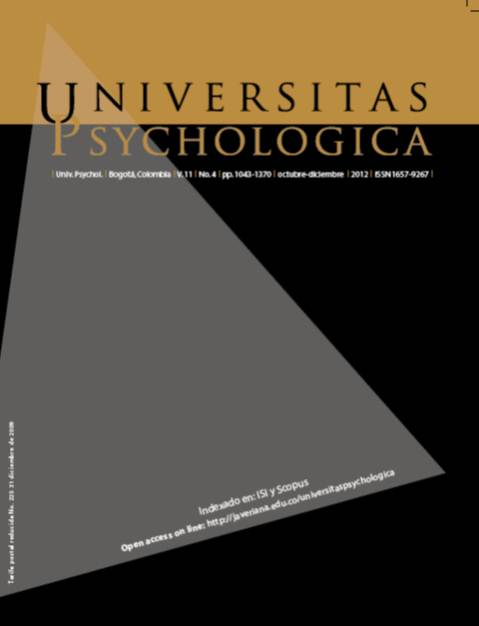Abstract
Studies on maternal stress during child raising have taken into consideration contextual variables to explain it. The socioeconomic level, as well as the family constitution have been relevant variables, associating singleparenting in low-income families with greater levels of maternal stress. Maternal stress levels in Chilean, nuclear and single-mother low income families are studied, considering stress in various dimensions, associated to the maternal role, to the mother-child interaction and to the difficulties the mother perceives in the child. 169 Dyads are studied, 80 of them of single-mother families and the other 89 of nuclear families, with children between the ages of 4 to 15 months. Maternal stress levels were measured with the Parental Stress Index, abbreviated version, developed by R. Abidin (1995). The results show significantly higher stress levels in mothers of single-parent families on stress associated to the maternal role, to the perception of a difficult child, and to total stress.
This journal is registered under a Creative Commons Attribution 4.0 International Public License. Thus, this work may be reproduced, distributed, and publicly shared in digital format, as long as the names of the authors and Pontificia Universidad Javeriana are acknowledged. Others are allowed to quote, adapt, transform, auto-archive, republish, and create based on this material, for any purpose (even commercial ones), provided the authorship is duly acknowledged, a link to the original work is provided, and it is specified if changes have been made. Pontificia Universidad Javeriana does not hold the rights of published works and the authors are solely responsible for the contents of their works; they keep the moral, intellectual, privacy, and publicity rights. Approving the intervention of the work (review, copy-editing, translation, layout) and the following outreach, are granted through an use license and not through an assignment of rights. This means the journal and Pontificia Universidad Javeriana cannot be held responsible for any ethical malpractice by the authors. As a consequence of the protection granted by the use license, the journal is not required to publish recantations or modify information already published, unless the errata stems from the editorial management process. Publishing contents in this journal does not generate royalties for contributors.


